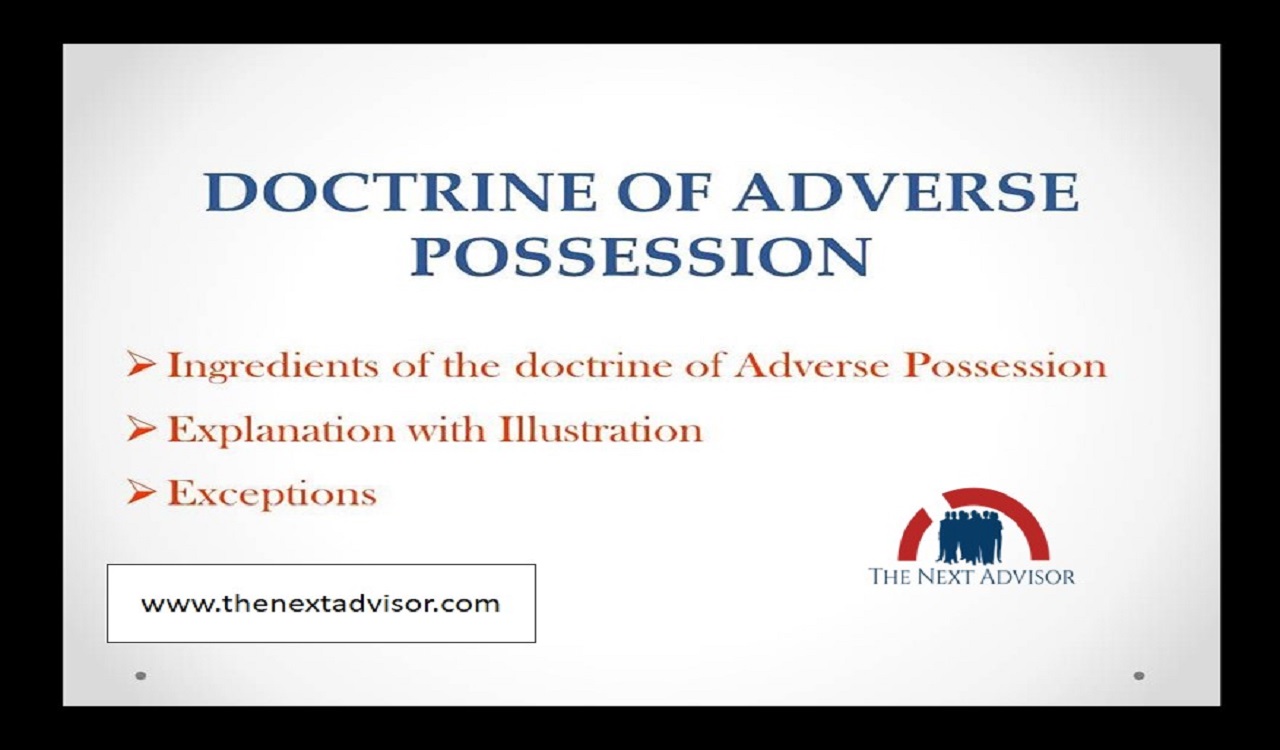Doctrine Of Adverse Possession
Section 27 in the limitation Act –
Extinguishment of right to property at the determination of the period hereby limited to any person for instituting a suit for possession of any property, his right to such property shall be extinguished. In the case of Banshi V. Das Govindit held that adverse possession must be adequate in continuity, publicity, and adversity to confer title. And in the case of Kalika Prasad and Anr. V. Chhatrapati Singh did not attempt to eject the respondent after the abolition of the state. Before obtaining a patta, the appellant did not serve any notice on the respondent. Respondent remained in possession for more than 12 years and he perfected his title by prescription. Such possession must be without interruption.
Sultan Khan V. State of Madhya Pradesh. Possession was interrupted by the initiation of proceedings under section 248 of MPLRC, 1959 during the statutory period of 12 years, hence, in this circumstance the acquisition of title by adverse possession is not perfected. The General mines and quarried ltd V. shri kartar singh. Mere possession and every illegal possession are not adverse possession. Defendant entering in possession as employees of the plaintiff and continuing even after termination of employment.
The possession neither surrendered followed by any overt act by the employee showing animus to prescribe hostile title. The possession is not adverse. It was held that the rule of law is the possession is referable to a lawful title and between co-owners possession of one is referable to the title of others until there has been an ouster but where possession has been continued for a considerable period exclusively with one co-owner and prima facie to the exclusion of other. This principle can hardly be applied.
The doctrine of adverse possession that was recognized at the earliest point of time dates back to about 2000 BC in the Code of Hammurabi which explained that if a man left his house, garden, or field and another person possessed and used it for three years the newcomer retained the land. In early England, the King generally owned all the land but when disputes between private individuals began to arise, actual possession of the land was often treated as the best evidence of ownership. Thus the doctrine of adverse possession served to clear the title to real property.



























